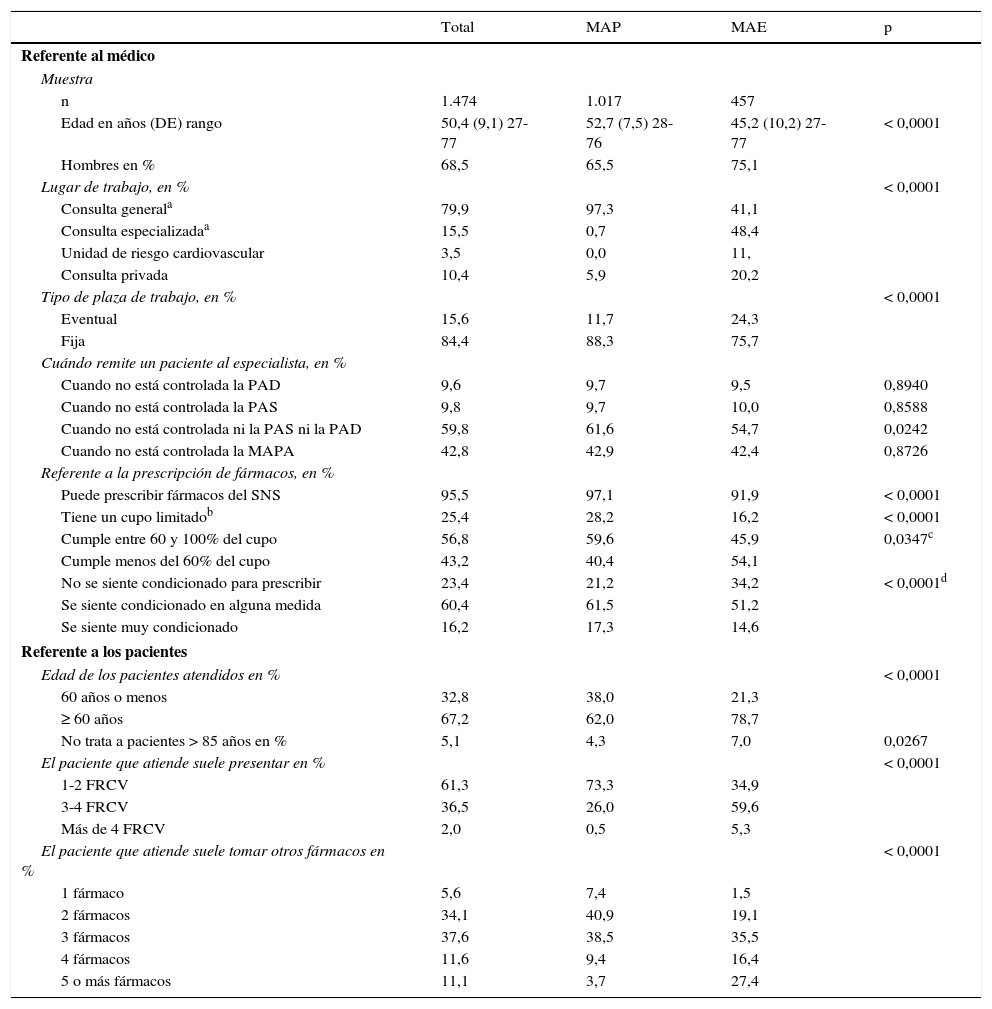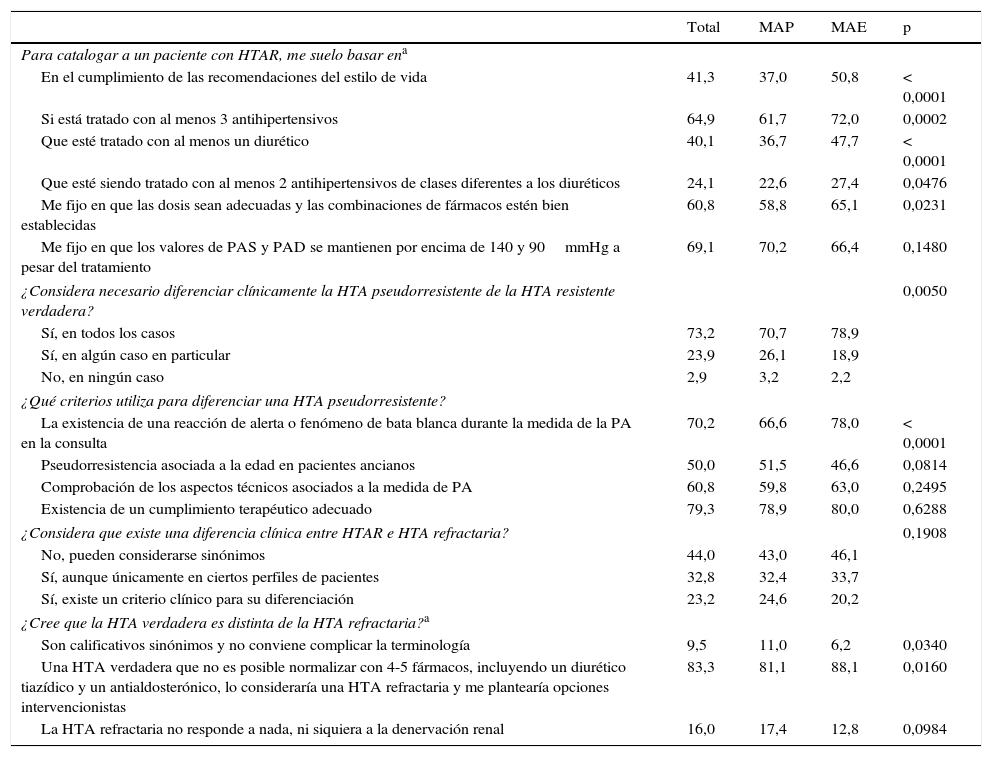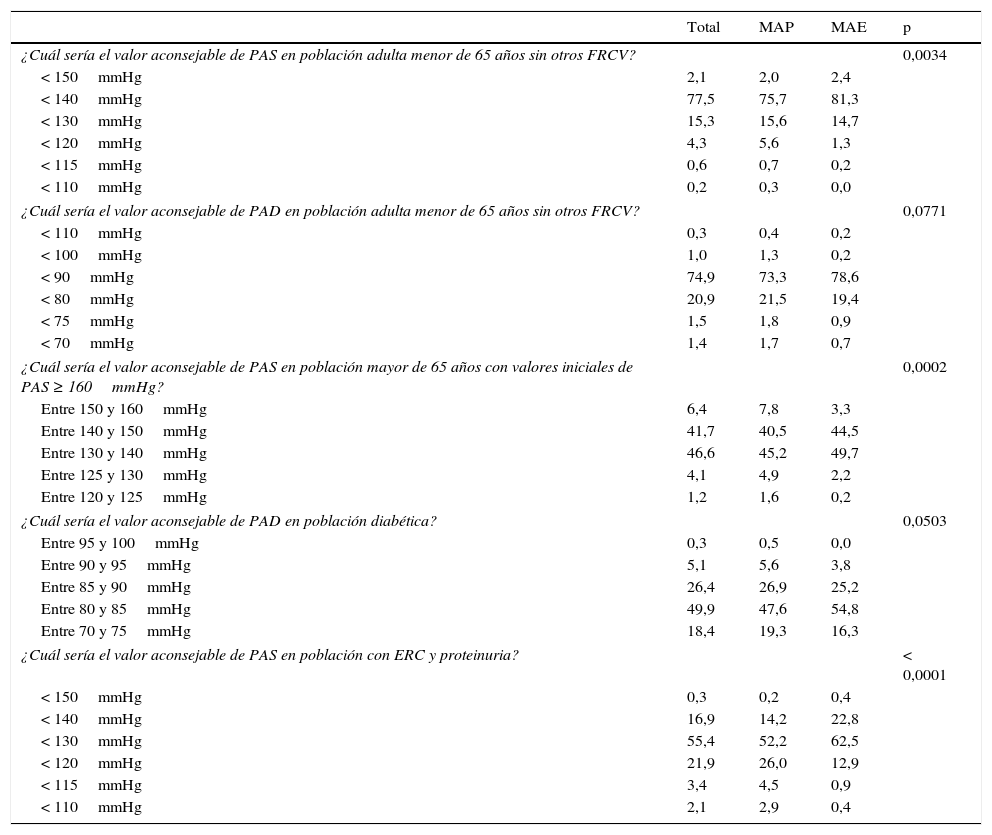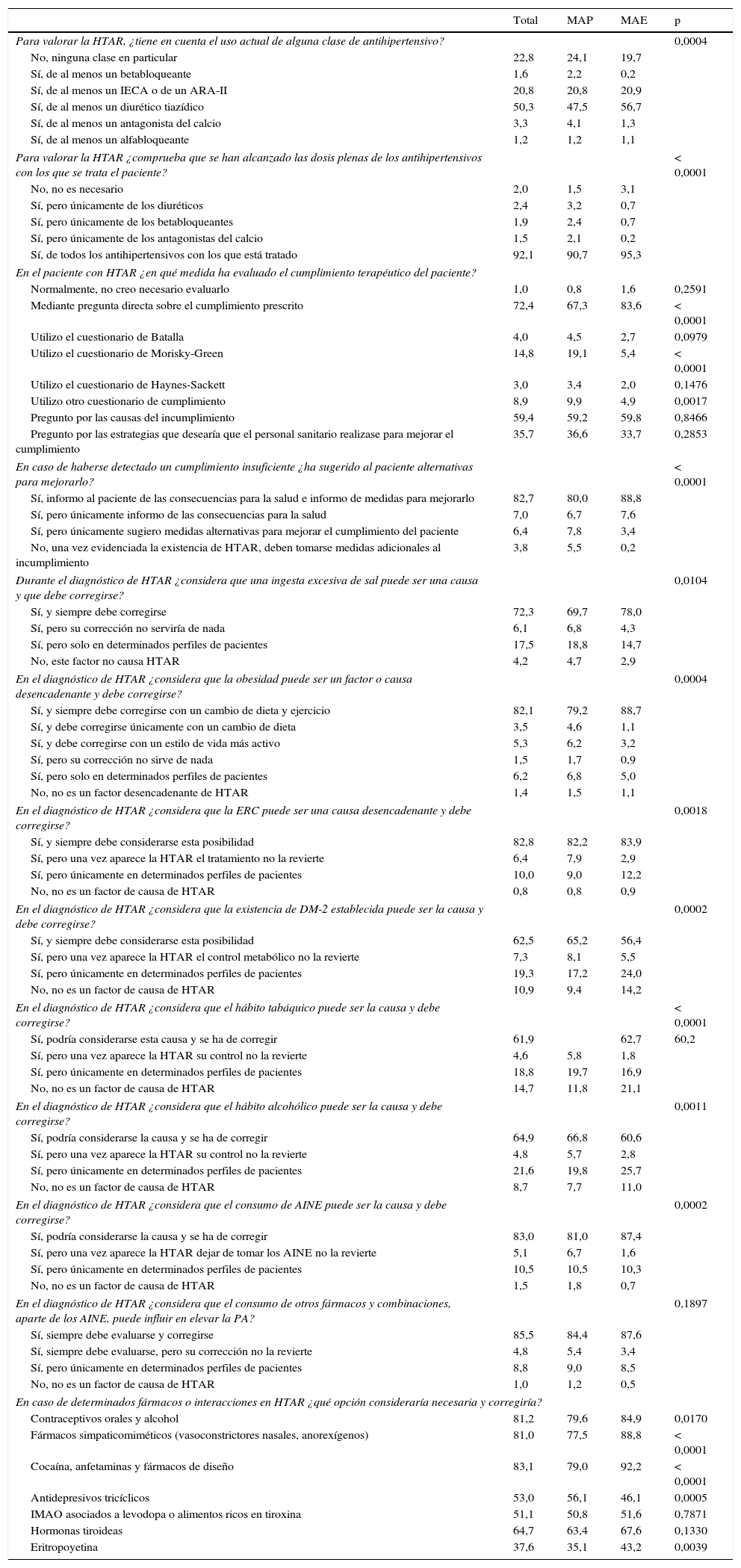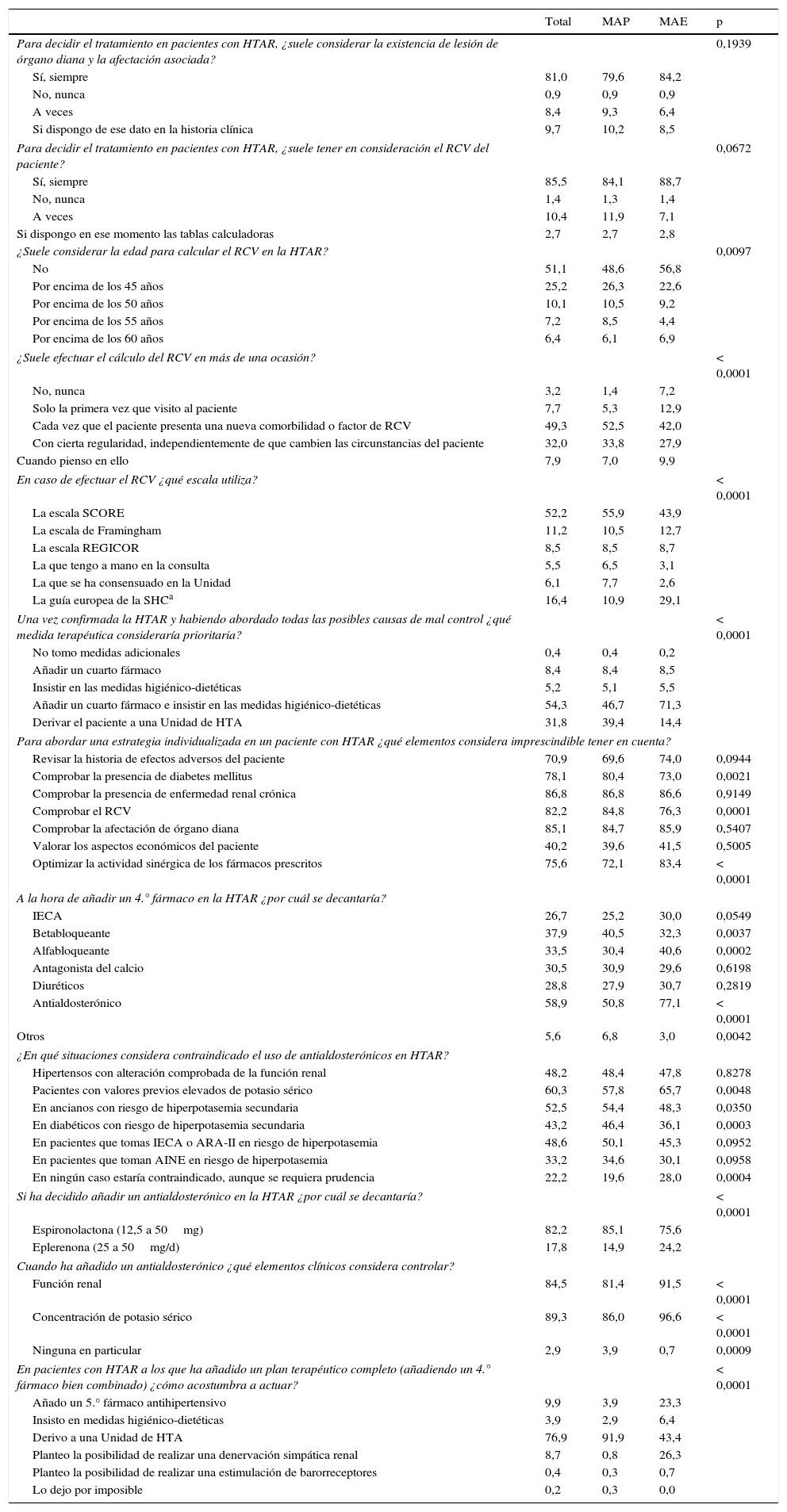La hipertensión arterial resistente (HTR) se asocia a un elevado riesgo de complicaciones cardiovasculares y renales. El objetivo del estudio fue evaluar la actitud y conocimiento de los médicos de asistencia primaria (MAP) y especializada (MAE) en la evaluación clínica y el tratamiento de la HTR.
Material y métodosEstudio observacional, descriptivo, multicéntrico, basado en un cuestionario ad hoc distribuido entre MAP (n=1.017) y MAE (n=457) de Medicina Interna y Cardiología.
ResultadosPara catalogar a un paciente con HTR la mayoría de los médicos (69,1%) se fija en que a pesar del tratamiento los valores de PAS/PAD sean > 140/90mmHg, que esté recibiendo al menos 3fármacos antihipertensivos (64,9%) y, para el 50,3% (56,7% MAE; p=0,0004), que uno de ellos sea un diurético tiazídico, necesariamente. Para establecer el diagnóstico definitivo, el 89,6% de los médicos cree necesario valorar la presión mediante su medida ambulatoria durante 24 h (93,3% MAE; p=0,0017) y el 70,2% explora la existencia del efecto de «bata blanca». El 79,3% verifica el cumplimiento terapéutico por medios sencillos y entre el 87 y el 95% evalúa la posibilidad de una hipertensión arterial secundaria como causa de la resistencia. La medida terapéutica considerada prioritaria por el 54,3% de los médicos es añadir un cuarto fármaco e insistir en las medidas higiénico-dietéticas (71,3% MAE; p<0,0001).
ConclusionesEl conocimiento y actitudes de los médicos de nuestro país sobre el manejo de la HTR es bueno, y algo mejor entre los médicos internistas y cardiólogos clínicos que entre los médicos de Atención Primaria.
Resistant hypertension (RH) is associated with a high risk of cardiovascular and renal complications. The purpose of this study was to assess the knowledge and attitudes of Primary Care physicians, general medicine doctors, and clinical cardiologists on the management of this condition.
Material and methodsA multicentre, descriptive, observational study based on an ad hoc questionnaire distributed to Primary Care physicians (n=1017) and general medicine physicians/clinical cardiologists (n=457).
ResultsTo establish the diagnosis of resistant hypertension, 69.1% of physicians confirm that systolic/diastolic blood pressure is above 140/90 mmHg, despite treatment. Furthermore, 64.9% only consider this diagnosis if the patient is treated with at least 3 medications, and 50.3% also requires that one of them is a thiazide diuretic (56.7% among specialists, P=.0004). To establish a definite diagnosis of true RH, 89.6% perform 24-h ambulatory blood pressure monitoring (93.3% of specialists, P=.0017), looking specifically for «white-coat» effect in 70.2% of cases. In addition, 79.3% verify that adherence to treatment is adequate. Between 87 and 95% of physicians indicate examinations to exclude causes of secondary hypertension. Up to 54.3% of physicians (71.3% specialists, P<.0001) consider adding a fourth drug and insisting on lifestyle interventions as a priority therapeutic measure.
ConclusionThese data show that physician knowledge regarding the management of patients with RH is good. Interestingly, this knowledge is somewhat higher among specialists than among Primary Care physicians.






